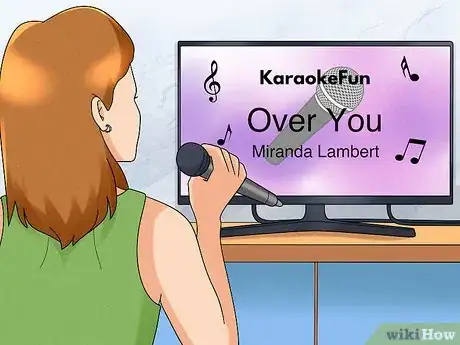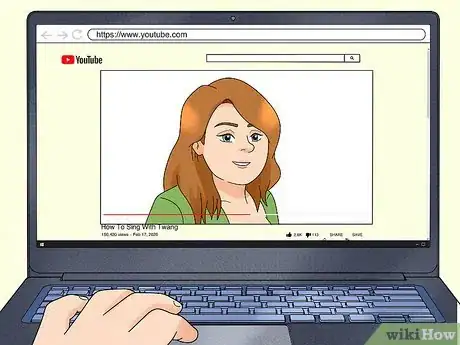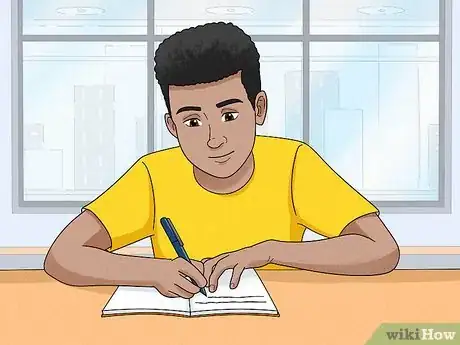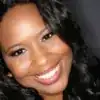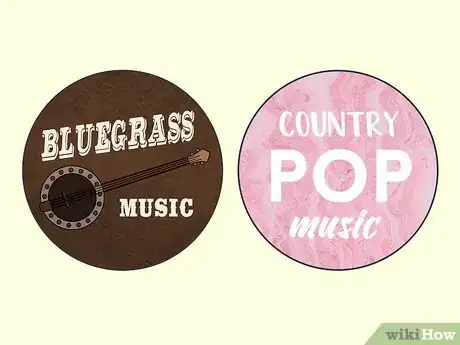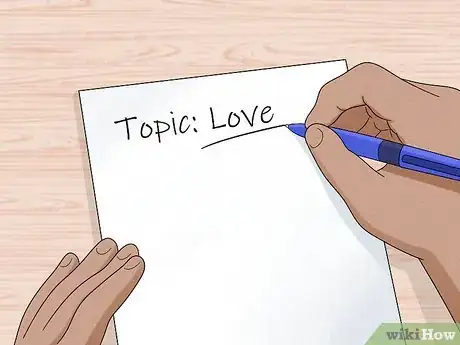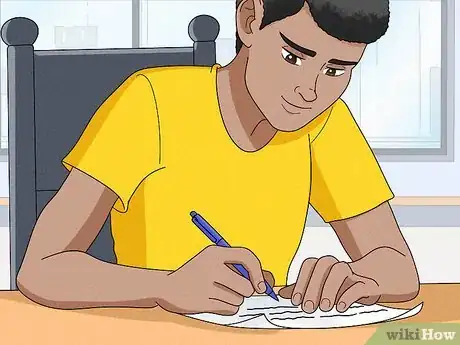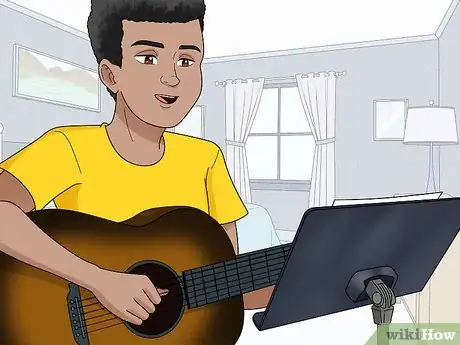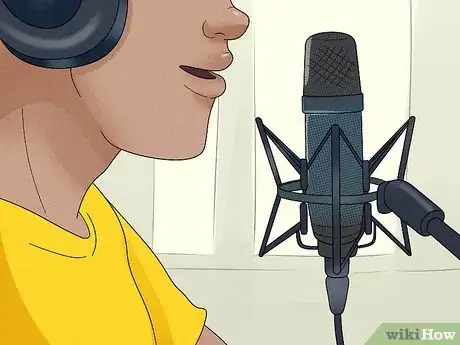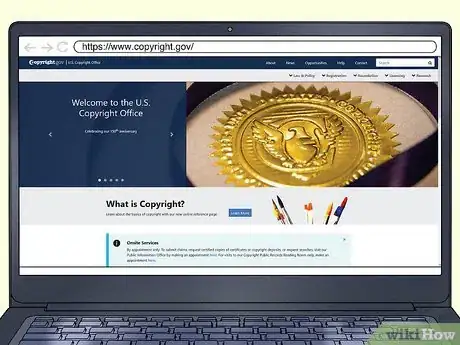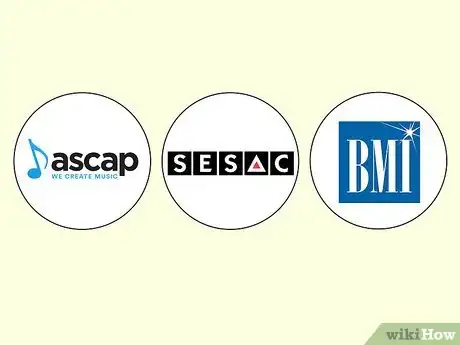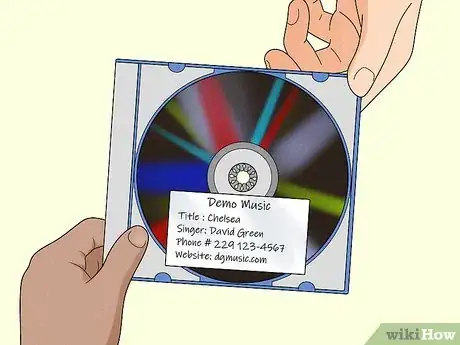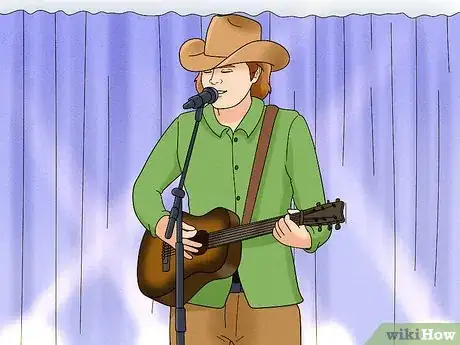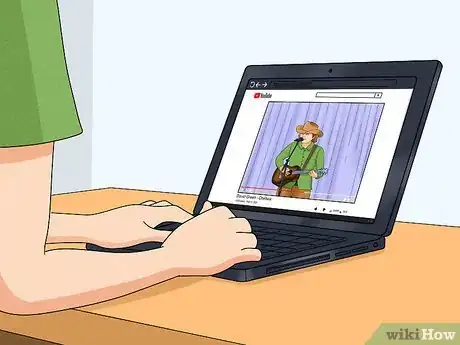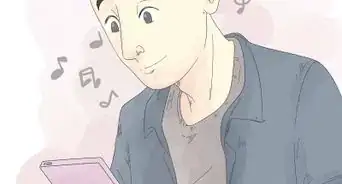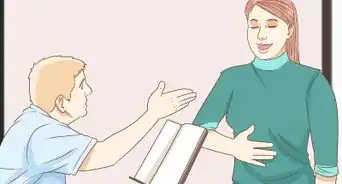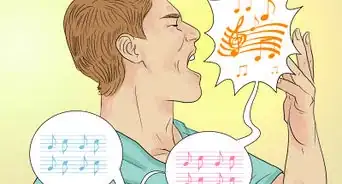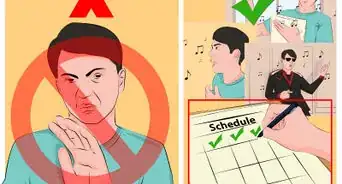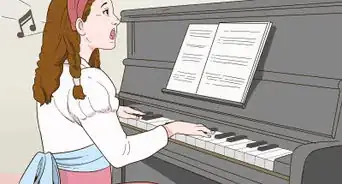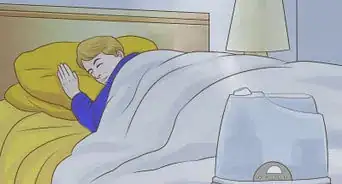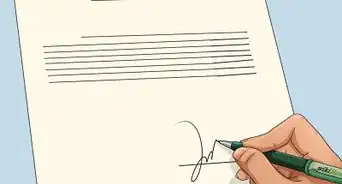This article was co-authored by Tanisha Hall. Tanisha Hall is a Vocal Coach and the Founder and Executive Director of White Hall Arts Academy, Inc. an organization based in Los Angeles, California that offers a multi-level curriculum focused on fundamental skills, technique, composition, theory, artistry, and performance at a conservatory level. Ms. Hall's current and previous students include Galimatias, Sanai Victoria, Ant Clemons, and Paloma Ford. She earned a BA in Music from the Berklee College of Music in 1998 and was a recipient of the Music Business Management Achievement Award.
There are 16 references cited in this article, which can be found at the bottom of the page.
wikiHow marks an article as reader-approved once it receives enough positive feedback. In this case, 100% of readers who voted found the article helpful, earning it our reader-approved status.
This article has been viewed 142,030 times.
Country music is a genre about the experiences and stories of people’s lives. It uses familiar topics and simple melodies. With hard work you can become a country singer. If you perfect your singing and songwriting you may just get noticed and become the next Carrie Underwood.
Steps
Getting a Country Sound
-
1Learn to sing. You can’t be a country singer without being good at singing. Even if you consider yourself or have been told you are a good singer it is important to make sure you have the base singing skills necessary to be a singer. Find your singing range and practice singing regularly.[1]
- If you have a lot of improvement that needs to be done or you just want to get your voice the best it can be, you might want to consider taking singing lessons. You can also use websites and phone apps to learn to sing.
-
2Sing along to country singers. In order to mimic the sound and learn the country style, practice by singing along to country artists you like who are in your vocal range. [2]
- Women may want to listen to Tammy Wynette, Dolly Parton, Miranda Lambert, Martina McBride, Carrie Underwood, Allison Krauss, Kelsea Ballerini, Loretta Lynn, Patsy Cline and Kellie Pickler.
- Men may want to listen to Hank Williams, Tim McGraw, George Strait, Waylon Jennings, Kenny Chesney, Keith Urban, George Jones, Rodney Atkins, and Toby Keith.
Advertisement -
3Learn the country twang. Country singers have a specific sound to their voice. Whether you have the country twang naturally or not it is possible to learn to sing with a country style to your voice.
- First try to put the country twang in your speaking voice. Mimic the country twang of singers, actors, and characters into your speaking.
- Start singing with the twang by over exaggerating the sound of it. This will get the sound familiar on your voice. Once you have the feel of it down, tone it down. [3]
-
4Learn to play the guitar. This will help create your country sound and make song writing easier. If you really cannot learn you can have someone play while you sing and be a duo, but knowing how to play guitar is a major part of country singing.
- The most important chords to learn for country music are G, C, D, and A. Country music is usually a combination of these chords. [4]
Writing Songs
-
1Decide if you want to write songs or be a cover artist. There are plenty of country singers who cover other artist’s songs. Start by learning how to sing other country singers songs before you decide if you want to write your own music.
- Put your own spin on a song to make it your own. For instance, you might break a phrase into a beginning, middle, and end, then decide which of those you might add your own riff or melody to. That way, the song is still recognizable, but it will be unique, as well.[5]
-
2Decide your style of country. There are various types of country music. There is traditional country western music that is simple and about real life issues. Bluegrass is similar to country western, except it is entirely acoustic. It uses acoustic instruments such as the upright bass fiddle, acoustic guitars, banjos, and fiddles. There is also a newer genre of country music called pop-country. Which is pop music with a country feel. [6]
-
3Think of a topic to write about. You can write about whatever you want, but country music does tend to follow some of the same basic topics. Country music is stories set to music. There is usually a plot and characters just like a story except it rhymes and has a melody.
- Common topics for country songs are broken hearts, betrayal, Jesus, the Devil, Mama, feeling blue, the South (Alabama, Tennessee, Louisiana, etc.), death, love, cowboys, and words of wisdom. [7]
-
4Write the lyrics. Once you have decided the subject to write about you can write the lyrics to your country song. There are plenty of sad country songs but the feel good songs are usually the hits. Country music is very literal so keep the lyrics simple. They should tell a story about what is happening around you or about what you know.
- Unlike pop, the chorus is the most important part of country music. Use a lot of adjectives in your lyrics to describe something. Don’t use swear words. Some genres use or even encourage using swear words, but not country music. [8]
-
5Write the melody. People are going to remember the melody of your song before they remember the lyrics. You can build your song around the melody but don’t let the melody control your lyrics. [9] The melody is a very important part of a country song. Without a melody you can’t feel the song and nobody will care about your song. [10]
- Country songs have very simple melodies, harmonies, and chord progressions. The basic chord progressions to write your melody to is typically G, C, D or G, D, A, or a combination of those chords. There is typically no need for any fancy chord progressions. [11]
-
6Record your song. There are many ways you can record your song depending on your resources and budget. You could work with a technical savvy friend, book time with a professional studio engineer, or just record your song at home using a microphone and computer software. Whatever way you choose to record your song, having a copy of an audio recording will open up many doors. [12]
- If you're planning to release your music commercially, it's best to record it in a professional studio. Professional recording can be a little costly, but you can make the most of it by rehearsing your song on your own. That way, you're not wasting valuable studio time trying to get the right notes.[13]
- You can also record many of the parts of the song on your own at home, like the background vocals, guitar, and bass. Then, you can just work on the lead vocals and drums in the studio—those are the parts that need to be recorded with a really good microphone.[14]
-
7Copyright your music. You music is copyrighted from the moment it is created, but if someone steals your music it is not protected in a lawsuit unless you register it. [15] As soon as you have a final version written and recorded you can register it online at the U.S. Copyright Office for a small fee. Once you do this the song is yours. No one can use the original material without your permission. If you don’t do this someone can steal the lyrics or melody and make a new recording of it. They won’t need your permission or have to pay you any royalties. [16]
Getting Discovered
-
1Join a Performing Rights Organization. Examples of PROs are ASCAP, SESAC, and BMI. They will collect any royalties and distribute them to you in an organized fashion. If your song is ever played on TV, iTunes, YouTube, or Spotify, you are entitled to royalty. Some PROs are free and others have a fee. [17]
-
2Pitch your music. This will take a while but today’s technology makes this faster than ever. You can send your demos and mixtapes out to try to get noticed.
- Send your demos to journalists, promoters, or management. Include your name, phone number, email address, and website on every CD that you send out. This way whoever listens to your CD will be able to contact you if they like it, whether they have your packaging or not. Keep your packaging simple. A simple note about who you are and any gigs you have will be good enough. [18]
- Look through the album sleeves of country artists you like to find labels and managers to send your demos to. There are websites available such as Showcase, The Unsigned Guide and CMU Directory to help find the name and address of people to send your demos to. [19]
-
3Perform your music. Many singers get discovered when they perform their music live. Start with your friends, family, and those you feel most comfortable with. Then perform your music in the small venues: open mics, talent shows, and café’s.
- Use who you know to get gigs. Even asking your friends to perform at birthday parties is a step in the right direction.
- Use the gigs you get to find more. If you make a good impression, promoters or someone in the audience might ask you to perform somewhere else.
- Ask small local venues or event organizer if you can perform at their venue or event. Try going to them in person or call over the phone instead of sending an email. [20]
-
4Create a fanbase. In order to stand out you need a fanbase. You will need to work hard to get fans to notice your work but having fans will open up many doors.
- Publish your songs online. Once you have a clear recording of your song and you have copyrighted it, publish it. It is easy for anyone to publish their song online. Put your music on YouTube or Soundcloud so other people can see your work.
- Use social media to create fans. Use Twitter, Instagram, Facebook, and other social media sites to get people to find you. Be active on social media and reach out to fans. Promote your music on your social media. [21]
- Have an image. Be yourself but have something about you that makes you known. This can be wearing a certain outfit, having a certain hairstyle, or acting a certain way. Taylor Swift became famous for her blonde curls and Lady Gaga for her ostentatious outfits. These images helped them become well known. [22]
Expert Q&A
Did you know you can get expert answers for this article?
Unlock expert answers by supporting wikiHow
-
QuestionHow can I stretch my budget if I don't have much money to record a song?
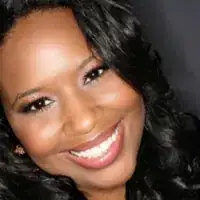 Tanisha HallTanisha Hall is a Vocal Coach and the Founder and Executive Director of White Hall Arts Academy, Inc. an organization based in Los Angeles, California that offers a multi-level curriculum focused on fundamental skills, technique, composition, theory, artistry, and performance at a conservatory level. Ms. Hall's current and previous students include Galimatias, Sanai Victoria, Ant Clemons, and Paloma Ford. She earned a BA in Music from the Berklee College of Music in 1998 and was a recipient of the Music Business Management Achievement Award.
Tanisha HallTanisha Hall is a Vocal Coach and the Founder and Executive Director of White Hall Arts Academy, Inc. an organization based in Los Angeles, California that offers a multi-level curriculum focused on fundamental skills, technique, composition, theory, artistry, and performance at a conservatory level. Ms. Hall's current and previous students include Galimatias, Sanai Victoria, Ant Clemons, and Paloma Ford. She earned a BA in Music from the Berklee College of Music in 1998 and was a recipient of the Music Business Management Achievement Award.
Vocal Coach
-
QuestionHow can I match the voice of someone whose singing I like?
 Community AnswerYou should find your own voice! Everybody's sound is different. But also, if you want to sound similar to someone, you could try seeing what their vocal range is and working so yours is the same.
Community AnswerYou should find your own voice! Everybody's sound is different. But also, if you want to sound similar to someone, you could try seeing what their vocal range is and working so yours is the same. -
QuestionHow do I get an agency to notice my music?
 Community AnswerGetting an agency to notice you is difficult but possible. Start by putting your music online and promoting it on social media. Perform your music anywhere you are able to, such as cafes and talent shows, this could lead to bigger gigs and agencies noticing you. You can also send in your demos to agencies or visit them yourself in person if you have that resource.
Community AnswerGetting an agency to notice you is difficult but possible. Start by putting your music online and promoting it on social media. Perform your music anywhere you are able to, such as cafes and talent shows, this could lead to bigger gigs and agencies noticing you. You can also send in your demos to agencies or visit them yourself in person if you have that resource.
Warnings
- Try not to strain your voice.⧼thumbs_response⧽
- Becoming a singer is very competitive.⧼thumbs_response⧽
References
- ↑ http://www.bbc.co.uk/sing/learning/
- ↑ http://www.bbc.co.uk/sing/learning/
- ↑ http://flypaper.soundfly.com/tips/achieve-perfect-country-twang/
- ↑ http://www.cluas.com/music/features/country_songs.htm
- ↑ Tanisha Hall. Vocal Coach. Expert Interview. 22 April 2020.
- ↑ http://www.dummies.com/how-to/content/writing-country-songs-plain-and-simple.html
- ↑ http://www.cluas.com/music/features/country_songs.htm
- ↑ http://www.rollingstone.com/music/pictures/14-simple-rules-for-writing-a-country-hit-20140613/sure-be-cool-if-you-did-by-blake-shelton-279856
- ↑ http://www.bmi.com/news/entry/4_dos_and_donts_when_writing_songs
- ↑ http://www.rollingstone.com/music/pictures/14-simple-rules-for-writing-a-country-hit-20140613/play-it-again-by-luke-bryan-0161057
- ↑ http://www.cluas.com/music/features/country_songs.htm
- ↑ http://www.musicindustryhowto.com/how-to-record-your-first-song-from-home-cheaply-the-basics-for-beginners/
- ↑ Tanisha Hall. Vocal Coach. Expert Interview. 22 April 2020.
- ↑ Tanisha Hall. Vocal Coach. Expert Interview. 22 April 2020.
- ↑ http://www.copyright.gov/help/faq/faq-general.html#automatic
- ↑ http://www.copyright.gov/circs/circ50.pdf
- ↑ http://diymusician.cdbaby.com/musician-tips/what-is-a-performing-rights-organization/
- ↑ http://www.bbc.co.uk/programmes/profiles/3CHKWycrKHxZ60Yxm7SkhmB/building-a-buzz
- ↑ http://www.bbc.co.uk/programmes/profiles/3CHKWycrKHxZ60Yxm7SkhmB/building-a-buzz
- ↑ http://www.musicindustryhowto.com/gigging-101-how-to-get-gigs-the-ultimate-guide/
- ↑ http://www.bbc.co.uk/programmes/profiles/5S8yGXvKhjCR7QWKHS6qqLP/showcasing-your-music
- ↑ http://www.bbc.co.uk/programmes/profiles/3CHKWycrKHxZ60Yxm7SkhmB/building-a-buzz

